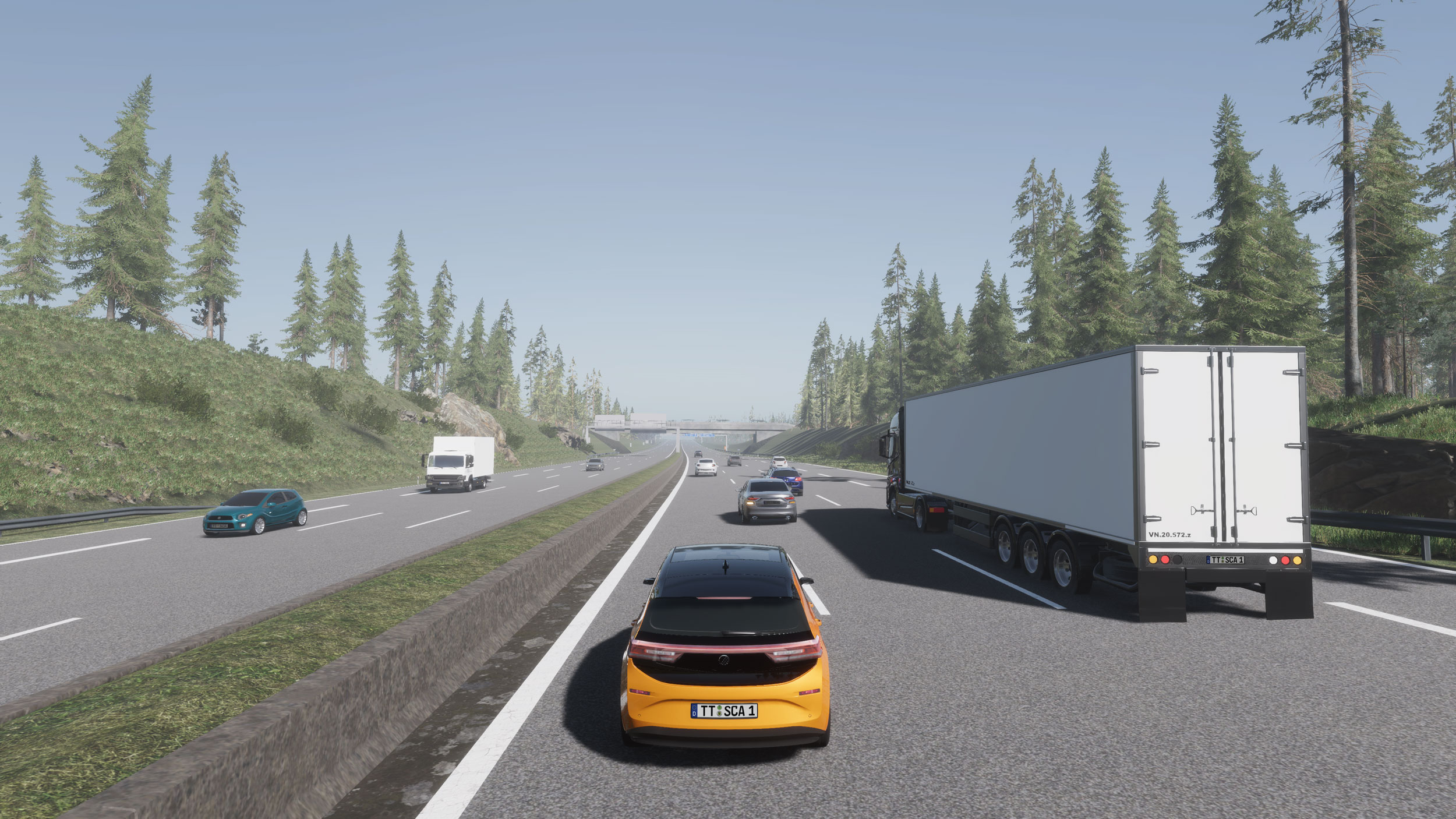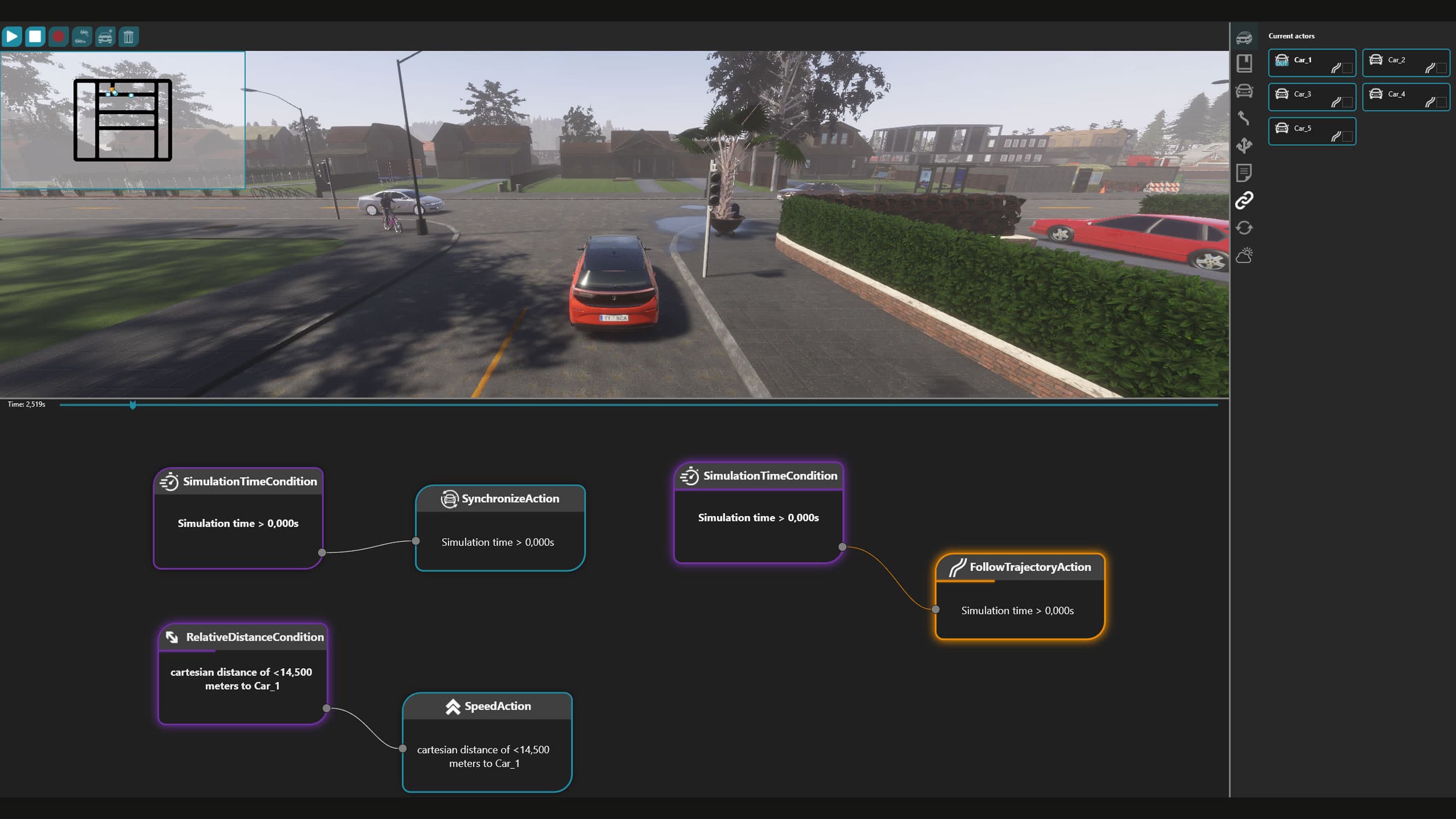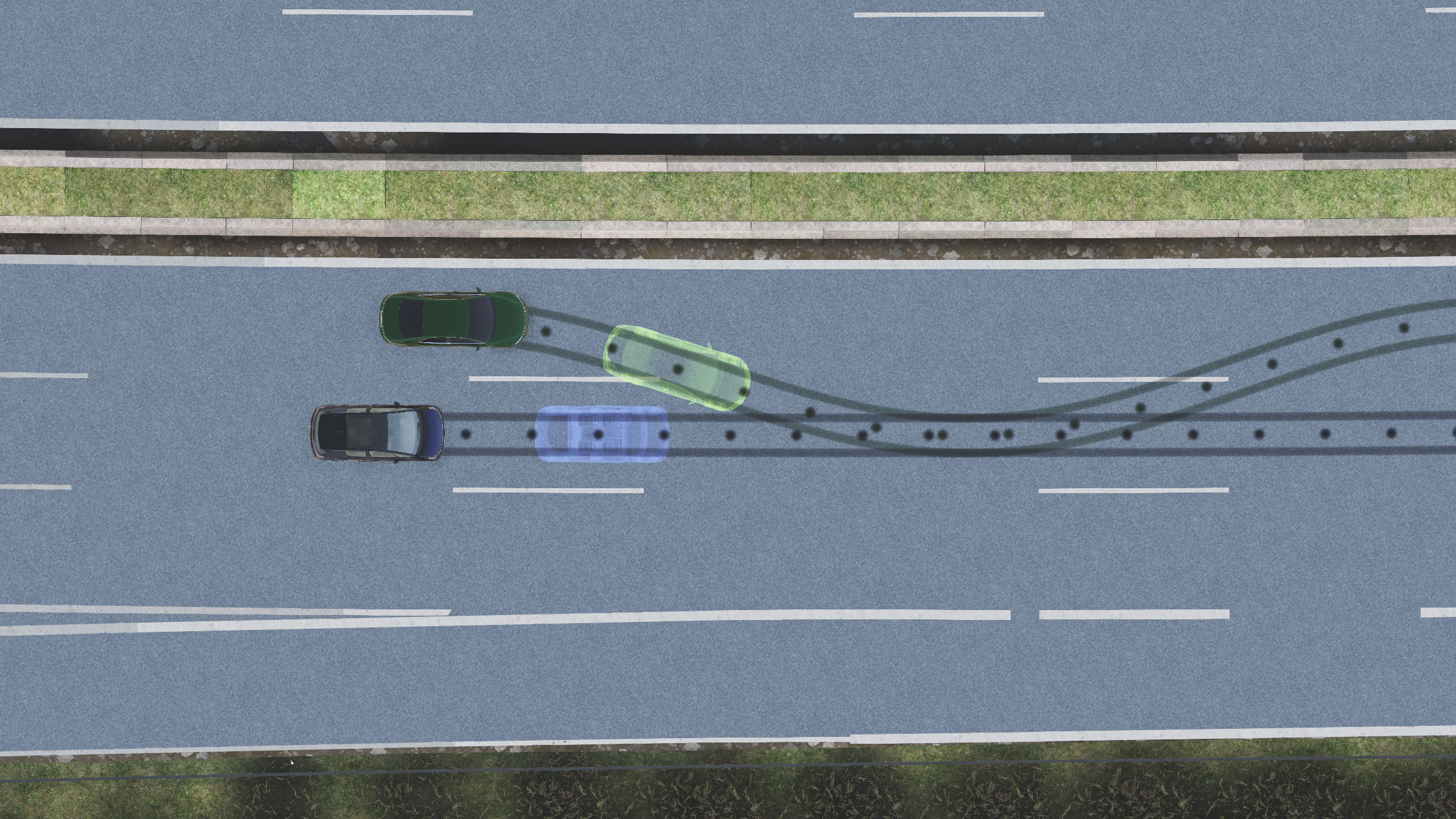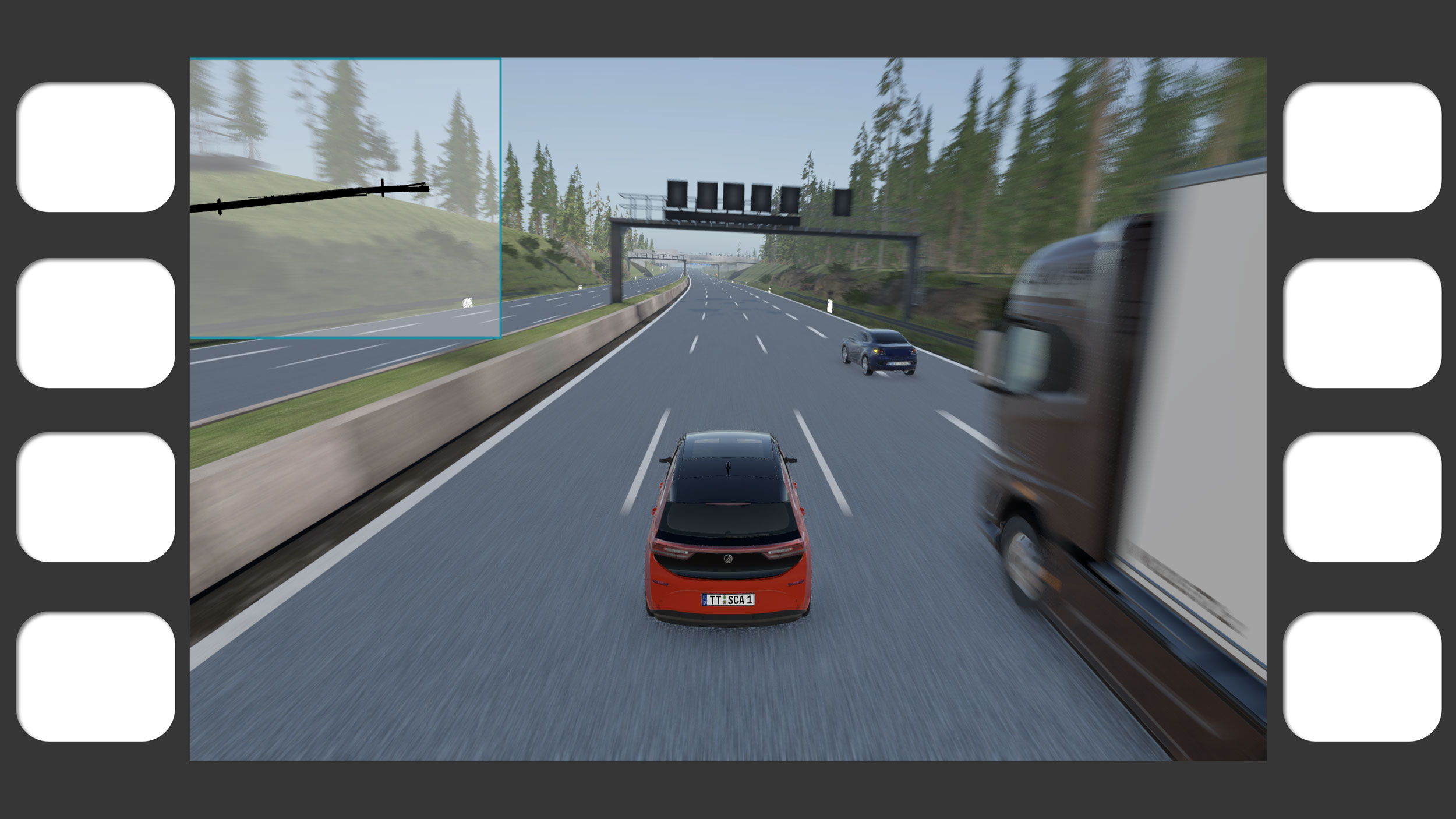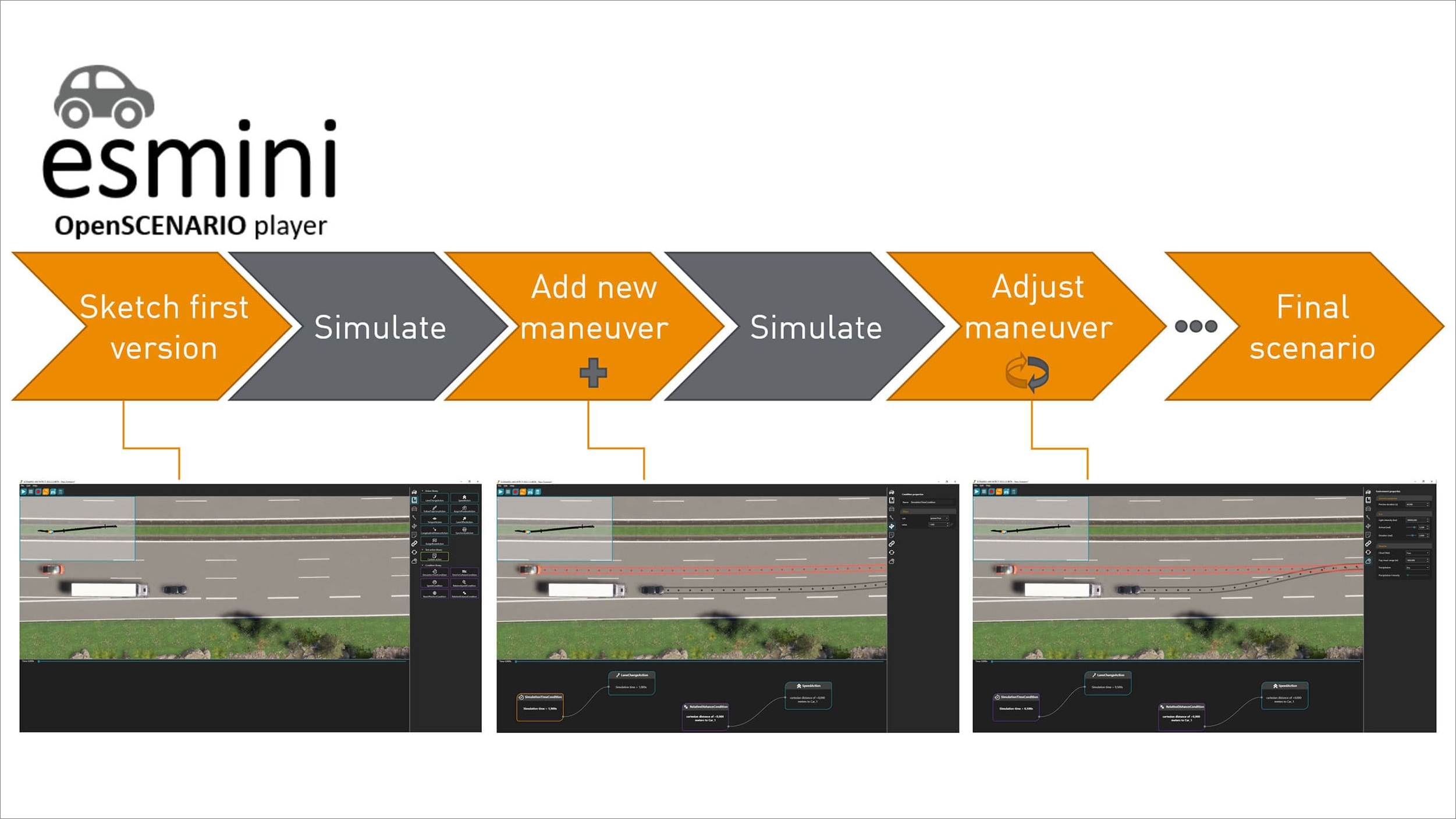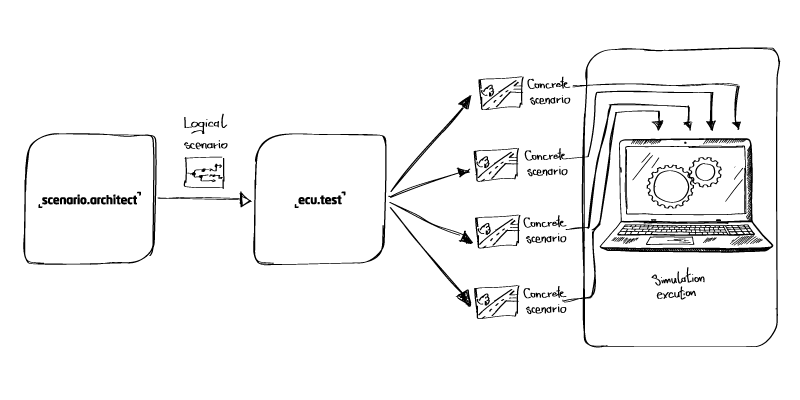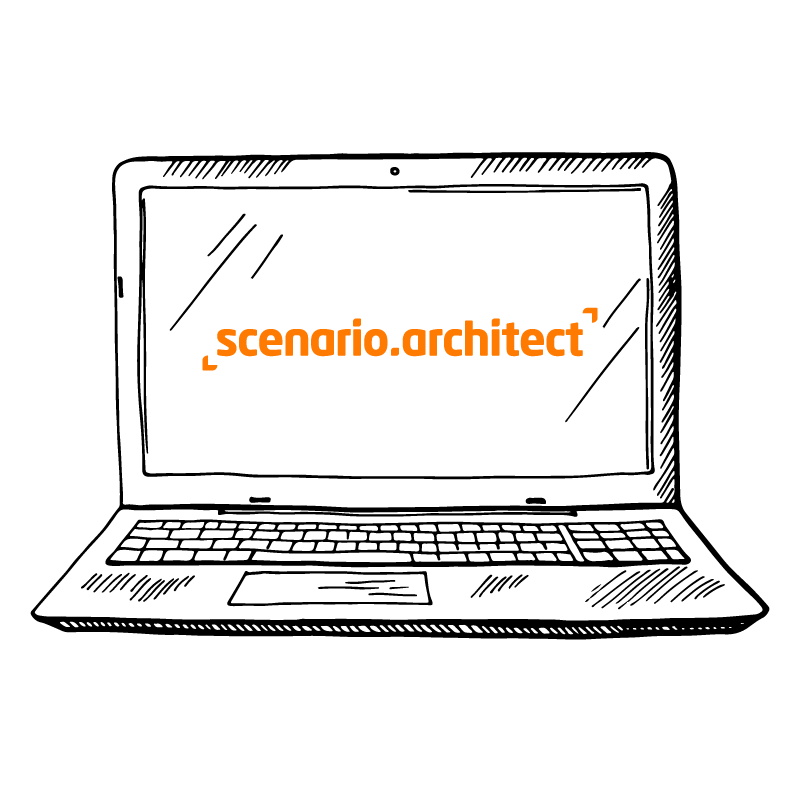
scenario.architect
creates driving maneuvers for every situation
With the scenario.architect [sɪˈnɛrioʊ ˈɑrkəˌtɛkt], you can iteratively develop ubiquitous road traffic situations, such as overtaking maneuvers, traffic jam situations or dangerous spots while the behavior of the vehicles involved can be easily specified.
Your advantages at a glance
Developing typical scenarios – in a breeze
A truck that suddenly swerves. A vehicle entering an overcrowded highway. Temporary road works behind a curve. Situations like these ignite our passion for the scenario.architect. With a few clicks, predefined vehicles are positioned, their properties defined and new maneuvers created. Slow down, accelerate, swerve – and then hit repeat.
Maintaining an overview
Once the first ideas have been implemented as a scenario, more and more complex traffic situations are usually added. Do not lose sight of the big picture now. The scenario.architect provides a quick and easy overview of the scenario content for this purpose.The scenario is not yet perfect? Then it is modified. For this purpose, nodes for maneuvers and their start conditions can be added, adjusted or deleted directly.
What you see is what you get
The scenario.architect can fundamentally shape the future of scenario-based testing. Where does this assumption come from? Well, it's just fun to work with. No complicated operation, no hidden functions, no programming. Instead, drag and drop, colorized vehicle types, a preview of future trajectories, the Ghost Drive feature that makes vehicles visible along trajectories, zoom-in, zoom-out, and rotations. To name just a few. The special thing is that there is a lot of attention to detail without losing sight of the essentials.
Communication is everything – even via video
The idea of sharing developed scenarios with others led to the introduction of comments. This is convenient because it allows content annotations to be deposited at special or important sections and at the test specifications of a scenario and then made available for discussion. To achieve even more and become better and better. If the scenario is exported as a video, the annotated content will also be exported and displayed during play back at the appropriate time.
Design and improve scenarios iteratively
Designing scenarios is an iterative process. Everything is designed to perfect each scenario. The next step? Always significant. The more elaborate various traffic situations are, the more precise testing can ultimately be. The current version of a scenario can be simulated at any time – even without external environment simulation. This is ensured by the included open source engine esmini.
Parameter variations
One scenario – unlimited possibilities. Sounds too good to be true? But it is. From one idea for a logical scenario, you can derive countless concrete scenarios. For example, a driving maneuver with a lane change after five seconds is easily parameterized and simulated with many different lane change times in ecu.test. The speed was too high for vehicle distance and lane change time much too short? Then you just vary these parameters again. There are no limits here.

ADAS workflow – from scenario to test
As a result of the integration of scenario.architect in ecu.test, all notes with the necessary details for the test specification are also available in ecu.test. This allows for a seamless transition from the scenario including its specification to the test.
Export results as OpenSCENARIO® 1.0
As active members of the ASAM association, we strive to support and promote the latest industry standards.Therefore, all scenarios can be exported to the open standards OpenSCENARIO® 1.0.
You want to know more about it?
scenario.architect data sheet
You will find the key facts about scenario.architect summarized in our product data sheet.

